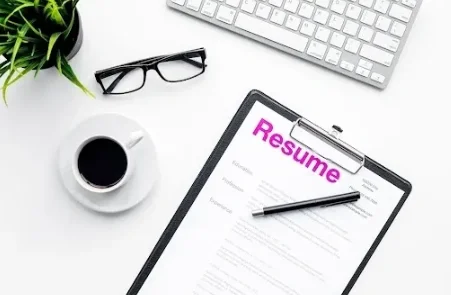Blog
Common Mistakes in Cover Letters and How Professional Services Can Help
Introduction
A well-crafted cover letter is a crucial component in the job application process, acting as the bridge between your resume and the potential employer. It offers a unique opportunity to expand on your skills, demonstrate your interest in the position, and showcase what you bring to the table. Neglecting this can lead to common mistakes in cover letters that might undermine an otherwise strong application.
- Common mistakes in cover letters include generic content that fails to engage, simply restating information from your resume, or making careless errors that detract from a professional image. These pitfalls can create a negative impression on employers, potentially costing you valuable opportunities.
- Professional services can enhance cover letter effectiveness by crafting personalized documents that highlight your strengths and align with job expectations. These services provide tailored content creation, expert feedback on structure and relevance, and ensure proper formatting for a polished appearance. Investing in professional assistance not only helps avoid common mistakes but also maximizes your chances of landing that dream job.
Engaging with professional services like NimoHR Consulting and Career Services equips you with the tools needed to excel in your job search by optimizing every aspect of your application materials. Whether it’s writing ATS-optimized cover letters or providing comprehensive career support, these services are designed to help you succeed.
Common Mistakes in Cover Letters
- Generic Cover Letters
When it comes to the job application process, generic cover letters are a common pitfall that many applicants fall into. A generic cover letter lacks personalization and specific details about the job or company. This type of letter often reads like a template, using broad descriptions of skills and experiences that could apply to any position.
Definition and Examples
Generic cover letters typically feature:
- Repeated phrases like “I am a hard worker” or “I have strong communication skills.”
- No mention of specific company values, goals, or job responsibilities.
- Vague introductions and conclusions without clear connections to the job role.
An example might be starting a letter with, “To whom it may concern,” followed by a list of general skills without relating them to the position applied for.
Impact on Employer Perception
Employers often perceive generic cover letters as a sign of lack of effort or genuine interest in the position. Such letters can fail to capture attention because they do not communicate enthusiasm or an understanding of the company’s needs. This oversight might lead hiring managers to question the applicant’s commitment and suitability for their organization.
Importance of Tailoring Content
Customizing your cover letter for each job application is vital. Start by researching the company’s mission and recent achievements, then align your skills and experiences with their specific requirements. By doing so, you demonstrate not only your qualifications but also your motivation and eagerness to contribute uniquely to their team.
Tailored content speaks directly to employers, highlighting why you are an exceptional fit for their role. It shows you’ve gone beyond surface-level research, offering insights into how you can add value from day one.
- Failing to Provide Examples
When crafting a cover letter, one of the common mistakes in cover letters is relying on vague claims without backing them up with concrete examples. This approach can hinder your job application by making your skills appear less credible and less impactful.
The Significance of Using Specific Examples
Specific examples serve as evidence of your abilities, illustrating how you’ve effectively utilized your skills in past roles. They provide a narrative that captures the attention of hiring managers, setting you apart from candidates who only offer generic information.
Enhancing Credibility
By showcasing real-life scenarios where you’ve applied your expertise, you build trust with potential employers. These examples demonstrate not just what you know, but how you’ve successfully put that knowledge into action.
Techniques for Identifying Relevant Experiences
Reflect on past projects or challenges where you made a significant impact. Consider situations where your contributions led to measurable results. Highlight these experiences in your cover letter to create a compelling argument for your candidacy.
Incorporating concrete examples transforms a generic cover letter into a persuasive tool that vividly depicts your qualifications.
- Restating the Resume
A common mistake in cover letters is reiterating resume details without adding value to the job application. While resumes focus on listing qualifications and work history, cover letters offer a unique opportunity to connect these experiences directly to the job requirements.
Key Differences:
- Resume: A factual summary of your work experience, education, and skills.
- Cover Letter: A personalized narrative that highlights how your background aligns with the employer’s needs.
Importance of Connection:
Highlighting relevant achievements that match the job description can demonstrate how your past experiences prepare you for the role at hand.
Strategies for Effective Summarization:
- Align Experiences with Job Requirements: Identify key responsibilities in the job listing and discuss how your experiences fulfill these needs.
- Contextualize Achievements: Share specific examples without duplicating resume content.
- Focus on Value Addition: Emphasize unique contributions you can make to the prospective employer.
- Properly distinguishing between these documents ensures a more compelling application that stands out from generic cover letters.
- Underestimating or Overinflating Experience
One of the common mistakes in cover letters is inaccurately presenting your qualifications. Whether you underestimate or overinflate your experience, both extremes can hurt your job application.
Downplaying Accomplishments
If you fail to highlight your achievements, potential employers may overlook your true capabilities. It’s important to confidently present your skills and experiences, ensuring they reflect your genuine abilities without being understated.
Exaggerating Accomplishments
On the other hand, inflating your experiences might grab attention initially but can backfire during interviews if you’re unable to back up your claims. This could harm your credibility and trustworthiness.
Honesty in presenting qualifications is crucial. Here’s how to find the right balance:
- Be Specific: Use quantifiable metrics whenever possible. Instead of saying “managed a team,” specify “led a team of 10 members to achieve a 20% increase in sales.”
- Align with Job Descriptions: Tailor your experiences to match the job requirements, demonstrating relevant skills without unnecessary embellishment.
By maintaining an authentic yet confident narrative in your cover letter, you ensure a truthful representation that resonates with potential employers and sets the stage for further discussions about what you bring to the table.
- Excessive Use of ‘I’
One common mistake in cover letters is the overuse of personal pronouns, particularly “I”. This self-centered language can create a tone that may not resonate well with employers, making the letter appear more about the applicant than the mutual benefits for the company and candidate. Employers are interested in how you will contribute to their team and objectives.
To address this, consider shifting focus from individual accomplishments to team contributions and alignment with company goals. For instance, instead of saying:
“I achieved a 20% increase in sales.”
You might frame it as:
“Contributed to a team effort that resulted in a 20% increase in sales.”
Utilizing more inclusive language helps emphasize collaboration and demonstrates an understanding of the company’s needs. By doing so, your cover letter becomes less about you individually and more about what you bring to the organization collectively, enhancing its impact on your job application.
- Not Addressing Employer Needs
Understanding and addressing an employer’s needs is crucial in overcoming common mistakes in cover letters, enhancing the effectiveness of your job application. A generic cover letter reflecting a lack of personalization can significantly hinder your chances of standing out. To effectively cater to an employer’s expectations, thorough research on companies is indispensable.
Importance of Understanding Employer Challenges:
Recognize the specific challenges and goals that the company is facing.
Identify how your skills and experiences align with their needs.
Incorporating Research into Cover Letters:
Use insights from your research to tailor your letter specifically to the company’s situation.
Highlight how you can contribute to solving their problems or achieving their objectives.
Examples of Addressing Specific Employer Needs:
If a company is focusing on expanding its digital presence, mention relevant experience in digital marketing or online sales strategies.
For a company prioritizing sustainability, emphasize any initiatives you’ve led or participated in that align with sustainable practices.
This targeted approach demonstrates genuine interest and positions you as a valuable candidate ready to meet the employer’s needs head-on.
- Making Errors
Mistakes in cover letters are more than just typos; they can severely hinder your job application by casting doubt on your attention to detail and professionalism. Common mistakes in cover letters include spelling errors, grammatical mistakes, and a lack of personalization. Such errors can damage your professional image, leading potential employers to question your reliability and dedication.
Proofreading and editing are crucial steps in the application process. They ensure your cover letter is polished and free of careless mistakes. Here are some tools and techniques for achieving error-free writing:
- Grammarly: A popular tool that checks for grammar, punctuation, and style issues.
- Hemingway Editor: Helps refine sentence structure and readability.
- Read Aloud: Reading your cover letter out loud to spot awkward phrasing or errors.
- Peer Review: Having someone else review your letter for a fresh perspective.
Implementing these strategies can significantly enhance the quality of your cover letter, increasing its impact and effectiveness.
How Professional Services Can Help with Cover Letter Mistakes
- Tailored Cover Letter Creation
Working with professional services provides a significant advantage in crafting personalized cover letters. These experts specialize in understanding the nuances of job applications, enabling them to create content that aligns closely with the specific role you are targeting.
Benefits of Working with Professionals:
- Customized Content Creation: Professional services ensure that each cover letter is uniquely tailored, avoiding common pitfalls such as generic language or irrelevant details. This customization helps highlight your skills and experiences most relevant to the job.
- Increased Impact: A well-crafted cover letter by professionals can significantly enhance your application’s effectiveness, making it more likely to catch the attention of hiring managers.
Process for Collaboration:
- Initial Consultation: The process typically begins with an in-depth discussion about your career goals, achievements, and the specific roles you are applying for. This step allows professionals to gather essential information needed for a personalized approach.
- Drafting and Review: Based on the initial consultation, a draft is created focusing on key aspects that will resonate with potential employers. You have the opportunity to review this draft and provide feedback, ensuring that the final product truly represents your professional persona.
- Finalization: After incorporating any necessary revisions, the final cover letter is polished to perfection, ready for submission.
Engaging with professional services not only addresses common mistakes but also elevates your cover letter’s quality through expert guidance and tailored strategies.
- Feedback on Content and Structure
Professional services play a crucial role in refining cover letters by providing expert feedback on your initial drafts. This personalized guidance is instrumental in identifying and overcoming common cover letter mistakes, ensuring your application stands out. By engaging with professionals, you receive insights into content relevance and optimized structure, which are pivotal for crafting a compelling narrative.
Key elements that professionals focus on during the review process include:
- Content Relevance: Evaluating whether the information presented aligns with the job requirements and employer expectations.
- Structure Optimization: Ensuring logical flow and coherence, highlighting key skills and experiences effectively.
Receiving constructive feedback from experts can transform a generic letter into a tailored document that resonates with potential employers. This process not only enhances clarity but also maximizes the impact of your cover letter, increasing your chances of securing an interview.
- Ensuring Proper Formatting Standards for Professional Appearance
Professional services help with cover letter mistakes by focusing on the formatting standards that contribute to a professional appearance. A well-formatted cover letter not only adheres to industry standards but also creates a positive first impression on potential employers.
Key aspects of standard formatting practices include:
- Consistent Font and Size: Use a readable font such as Times New Roman or Arial, typically sized between 10 and 12 points.
- Proper Margins: Maintain one-inch margins on all sides to ensure the content is centered and visually appealing.
- Alignment and Spacing: Left-align text for better readability, and use single spacing within paragraphs with a double space between them.
The impact of professional formatting is substantial. It enhances readability, showcases attention to detail, and reflects your understanding of business etiquette. Personalized cover letters with professional guidance ensure these elements are correctly implemented, thus overcoming common cover letter mistakes. This focus on formatting standards is crucial for making a strong initial impression.
- Get Help from Experts for Proofreading
Effective communication is crucial in job applications, where even minor errors can impact your professional image. Professional proofreading services ensure grammatical accuracy and elevate the quality of your cover letter. These experts meticulously review your document for:
- Spelling and Grammar: Detecting and correcting errors to enhance clarity.
- Punctuation: Ensuring proper usage to maintain readability.
- Consistency: Maintaining uniformity in style and tone.
By using professional services, you gain access to personalized cover letters with expert guidance. This approach not only addresses common mistakes but also ensures that your application reflects a polished and competent image. Such precision in communication demonstrates attention to detail, a quality highly valued by employers. As you consider how professional services help with cover letter mistakes, remember that proofreading is an investment in presenting the best version of yourself.
Conclusion: Investing in Professional Services for Job Application Success

Crafting an effective cover letter is a crucial step in securing job opportunities. It’s not just about avoiding common mistakes; it’s about creating a compelling narrative that captures the attention of recruiters. By investing in professional services, you tap into expertise that enhances your cover letter’s effectiveness and ensures it stands out.
Why invest in professional services?
- Tailored Content: Professionals craft cover letters that align with job expectations, highlighting your unique skills and experiences.
- ATS Optimization: With the help of experts, your application becomes more likely to pass through Applicant Tracking Systems (ATS), increasing your chances of being noticed.
- Error-Free Presentation: Proofreading services ensure your cover letter is polished and free of errors, projecting a strong professional image.
Recruiters appreciate applicants who present quality application materials. By leveraging the expertise of professional services, you position yourself for better opportunities and demonstrate a commitment to excellence. Whether you’re just starting your career or looking to make a change, investing in these services can be a game-changer for your job application success.
Latest Posts
- How to Write Engaging LinkedIn Articles That Build Your Brand
- How to Perfectly Align Your LinkedIn Profile with Your Resume
- How to Update Your Resume for 2025: Expert Tips from NimoHR
- Expert Resume Formatting Tips to Beat Applicant Tracking Systems (ATS)
- Industry-Specific CV Writing: Why One-Size-Fits-All Doesn’t Work
- How a Professionally Written CV Can Speed Up Your Job Search
- Why LinkedIn Profile Optimization is the Secret to Standing Out in a Competitive Job Market
- How a LinkedIn Profile Writer Can Transform Your Online Presence
- Enhancing Your Job Application: The Value of a Cover Letter Review Service
- Overcoming Common Interview Challenges: Gaps in Employment and Career Transitions
- The Role of Non-Verbal Communication in Job Interviews
- Mastering the Salary Conversation: Essential Strategies for Effective Negotiation
- Choosing Between Quitting and Getting Fired: What’s Best for Your Career?
- Mastering LinkedIn Skills: How to Choose the Best Skills for Career Growth
- 5 Proven Strategies to Send LinkedIn Invitations That Get Accepted
- Crafting the Perfect Cover Letter for an Internal Position: A Step-by-Step Guide
- Did You Know? Your Resume Reference Page Could Make or Break Your Job Application
- Crafting a Layoff Notice: Effective Communication During Work Shortages
- Mastering Behavioral Interview Questions: Tips and Examples
- In-Demand Skills for 2024: What to Include on Your Resume
- Navigating Career Transitions: Reshaping Your Resume for a New Path
- How to Optimize Your LinkedIn Profile
- Cracking the Job Interview: Insights from NimoHR’s Interview Preparation Sessions
- Using LinkedIn Articles to Showcase Your Expertise
- Creating a Standout Resume for Phoenix Employers: Tips on crafting a resume tailored to the preferences of local Phoenix employers
- Resume Trends for 2024: What You Need to Know
- From First Impression to Final Question: Excelling at the Four Key Interview Evaluation Points
- Behind the Screens: Understanding the Role of ATS in the Hiring Process
- How to Create the Perfect Executive LinkedIn Profile?
- How to Write a Cover Letter That Gets You the Job You Want
- How To Build A Resume
- Get Professionally Written Resumes And LinkedIn Profiles
- Top 5 Reasons To Avail Of LinkedIn Resume Writing Services
- Helpful Tips For Writing A Perfect Cover Letter
- How to Ace Your Next Interview
- 15 Things To Leave Off Your Resume
- Applying Strategically and Networking
- Effective Interview Strategies
- The Best Job-Board Sites
- 4 Simple Signs That You Should Quit Your Job
- The most common interview questions & the best way to answer them
- How to beat those pesky Applicant Tracking Systems
- Jump-start your career during the COVID-19 crisis
- Questions to ask in an interview
- Career consulting ROI. Why you should purchase a professional resume writing services
- The Importance of a Company Culture and HR’s Role
- Why companies should offer outplacement services and career coaching
- Interview Tips: Back to the Basics
Categories
Related Posts

How to Write Engaging LinkedIn Articles That Build Your Brand
LinkedIn is more than a networking platform—it’s a place to share insights, build authority, and grow your personal brand. Knowing how to write engaging LinkedIn articles can amplify your voice, attract job opportunities, and establish you as an industry thought leader. Whether you’re working with a LinkedIn profile optimization service or looking to boost your… Continue reading How to Write Engaging LinkedIn Articles That Build Your Brand
Read More
How to Perfectly Align Your LinkedIn Profile with Your Resume
Why Alignment Matters Your LinkedIn profile and resume should tell the same story—but tailored for different audiences. While your resume is targeted toward specific job applications, your LinkedIn profile is a living, breathing summary of your career. In today’s job market, hiring managers often look at both. A mismatch can raise red flags. That’s… Continue reading How to Perfectly Align Your LinkedIn Profile with Your Resume
Read More
How to Update Your Resume for 2025: Expert Tips from NimoHR
Updating your resume for 2025 requires more than just listing your latest job. With applicant tracking systems (ATS) becoming more sophisticated, you need to format and write your resume strategically to stand out. At NimoHR, we specialize in helping professionals craft impactful resumes that pass ATS filters and impress hiring managers. If you’re ready to… Continue reading How to Update Your Resume for 2025: Expert Tips from NimoHR
Read More